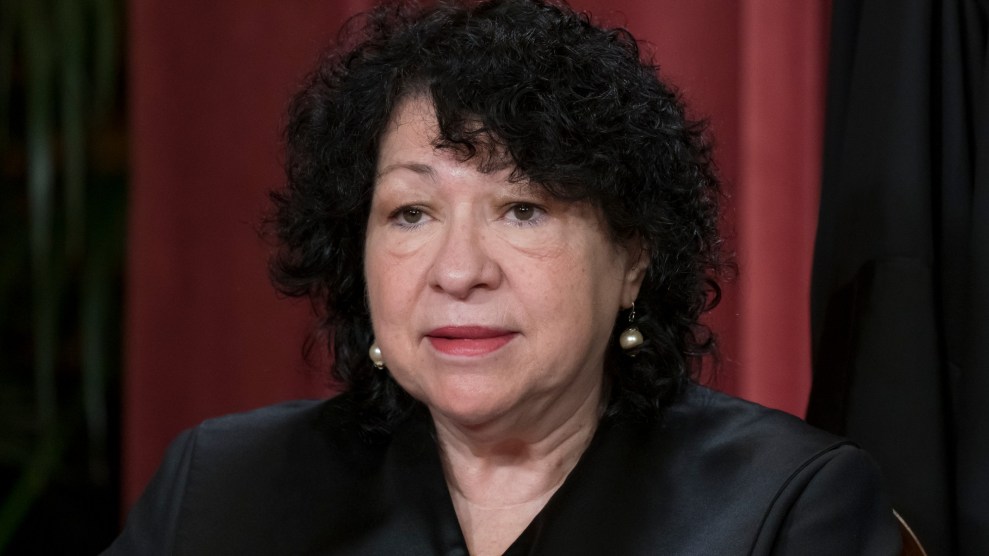
J. Scott Applewhite/AP
On Tuesday, the Supreme Court heard arguments in two separate cases that challenge President Biden’s plan to wipe out more than $400 billion in student debt for approximately 40 million Americans. The two highly watched cases are both quite technical. But in the first argument of the day, Justice Sonia Sotomayor managed to cut through the legal complexity to handily summarize the problems with the case: It ignores the vast advantages of generational wealth when it comes to paying for education and the hardship that borrowers without financial help will face if Biden’s program is cancelled—and, to top it off, cancellation’s opponents are asking the high court to engage in judicial overreach to shut off a program that they simply don’t like.
“That really has us, the third branch of government, changing Congress’s words,” Sotomayor said. Among the millions of borrowers who would be helped by debt cancellation, “many of them don’t have assets sufficient to bail them out after the pandemic. They don’t have friends or families or others who can help them make these payments. The evidence is clear that many of them will have to default.”
That first case, Biden v. Nebraska, is brought by six Republican-led states, and their argument hinges on two points. First, they say Biden’s plan would financially harm their states by hurting state tax revenue. And second, they argue that Biden is overstepping his authority by issuing the cancellation. This second piece of the argument led to a tussle between the lawyer representing the six states, Nebraska Solicitor General James Campbell, and Sotomayor.
The basics of the GOP-led states’ argument goes like this. The Biden Education Department issued student debt cancellation by relying on the HEROES Act—a 2003 law enacted by President George W. Bush that gives the education secretary the authority to “waive or modify any” (emphasis added) student debt programs in response to national emergencies. The Biden administration argues that the wording there is crystal clear, allowing the Education Department to make whatever changes it sees fit to help borrowers during emergencies, like a once-in-a-lifetime global pandemic—including outright debt cancellation.
But the Republican-led states spent the bulk of their time before the high court arguing that, in fact, the words “waive” and “modify” don’t really mean that. And that they were only ever meant to allow small tweaks to existing programs. Campbell offered up an example of an allowed change: a loan discharge program for teachers that had previously required years of consecutive service, but was changed to allow for teachers to leave service due to a national emergency and still qualify for loan discharge.
Sotomayor was not having it, accusing Campbell of playing with semantics. A rewrite is a rewrite, she said, whether it’s a rewrite like the teacher program he described, or one that terminates a borrower’s obligation to pay their debts, like the one by Biden’s education secretary. “You just want to say, ‘This is a bigger rewrite than I like,'” she said.
Then she explained why his request for the high court to define “waive” and “modify” so narrowly is both an affront to the millions of students who will default when loan payments are turned back on this summer—and a brazen request for judicial overreach:
There are 50 million students who will benefit from this who will struggle…Their financial situation will be even worse because once you default the hardship on you is exponentially greater: You can’t get credit, you’re going to pay higher prices for things. They are going to continue to suffer from this pandemic in a way that the general population doesn’t.
And what you’re saying is now we’re going to give judges the right to decide how much aid to give them. Instead of the person with the expertise and the experience—the secretary of education—who’s been dealing with educational issues and the problems surrounding student loans, we’re going to take it upon ourselves, instead of leaving that decision in the hands of the person who has experience with these questions.








